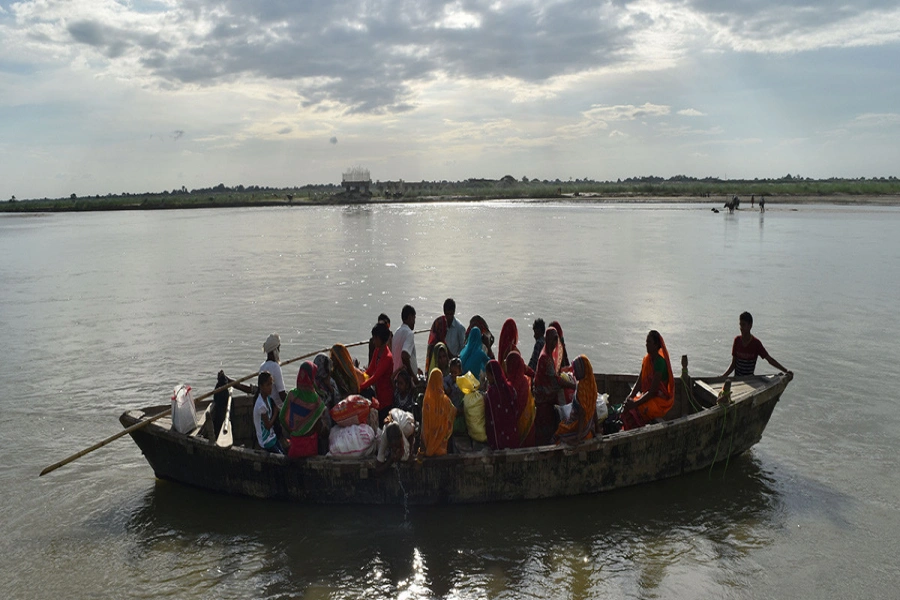KATHMANDU, June 12: Students and their organizations once played an influential role in transforming the country's political system. They actively joined movements against social injustices. However, the results of the recent Free Student Union (FSU) elections clearly show a sharp decline in that awareness.
The latest FSU election offers a striking example. Data shows that voter turnout in major campuses barely reached 23 percent. On March 18, 2025, Tribhuvan University conducted FSU elections across its constituent and affiliated campuses nationwide, but very few students participated.
In the 17 constituent campuses of Tribhuvan University within the Kathmandu Valley, 59,192 students registered as voters. However, only 26,806 of them voted, resulting in a turnout of just 45 percent. Major campuses recorded even lower participation, with turnout ranging from only 15 to 34 percent.
Most students didn’t bring their voter ID cards to the polls, and some said their ID cards remained at the campus.
An analysis of the results from 17 campuses, including 13 in Kathmandu (Central Campus, Padma Kanya Multiple Campus, Nepal Law Campus, Tri-Chandra Multiple Campus, Nepal Commerce Campus, Amrit Science Campus, Thapathali Campus, Lalitkala Campus, Maharajgunj Medical Campus, Public Administration Campus, Mahendra Ratna Campus, Ayurveda Campus, and Maharajgunj Nursing Campus), two in Bhaktapur (Bhaktapur Multiple Campus and Sanothimi Campus) and two in Lalitpur (Patan Multiple Campus and Pulchowk Campus) revealed that more than half of the students chose not to vote.
FSU Election: Things to Consider

At Tribhuvan University's Central Campus in Kirtipur, Kathmandu, 6,174 students were registered as voters, but only 3,118 voted. Similarly, at Padma Kanya Campus in Bagbazar, Kathmandu, 6,297 students were registered, yet only 1,596 cast their votes—resulting in a turnout of just 15 percent.
Among the constituent colleges, Tri-Chandra Campus recorded the highest number of registered voters at 7,691, but only 2,671 students voted, showing a turnout of just 34 percent.
At Nepal Commerce Campus, 6,786 students were registered as voters, but only 2,267 voted—just 33 percent turnout. Similarly, at Patan Multiple Campus in Lalitpur, another major constituent campus of Tribhuvan University, 7,000 students were registered, but only 1,678 cast their votes, resulting in a turnout of just 23 percent.
Himal Sharma, former FSU president of TU Central Campus, said the low turnout—just 15 percent in major campuses—shows that students are increasingly disillusioned with politics. He noted that in the past, FSUs on campuses played a powerful role as an extension of national politics.
He said student politics once held the power to bring about systemic change in the country. He believes students did not participate in the recent elections because the Free Student Union (FSU) failed to make a meaningful impact on the student community in recent years. "I served as an FSU member at TU Central Campus in 2065 BS. Back then, the FSU influenced not only the campus and university but also contributed to national political change," he said. "Today's FSUs have failed to raise academic issues."
Dujang Sherpa, president of the Nepal Student Union (NSU), said prolonged disputes over student union elections at Tribhuvan University have weakened students' interest in the process. "The new generation has not developed trust in politics, and the FSU election results clearly reflect that," Sherpa said.
He also pointed out that holding no elections for 14 years increased students' apathy. "The last election took place in 2079 BS, and this election came only after 14 years," he added.
Rajkumar Rai, former FSU president of Ratna Rajya Campus, said that the long gap in student union elections left the younger generation unaware of the FSU elections, which lowered student participation.
Rai, who also served as personal secretary to former President Bidya Devi Bhandari, said the FSU has recently failed to raise constructive and student-related issues. Rai served as the FSU president of Ratna Rajya Campus in 2065 BS. He said, "The FSU once formed the foundation for establishing leadership in national politics, and students enthusiastically participated in the elections."
He added that the FSU then acted as a bridge between students, teachers, staff, and the administration on campus. Rai concluded that the leadership's failure to work effectively and timely in national politics directly reduced student participation in the FSU elections.

































